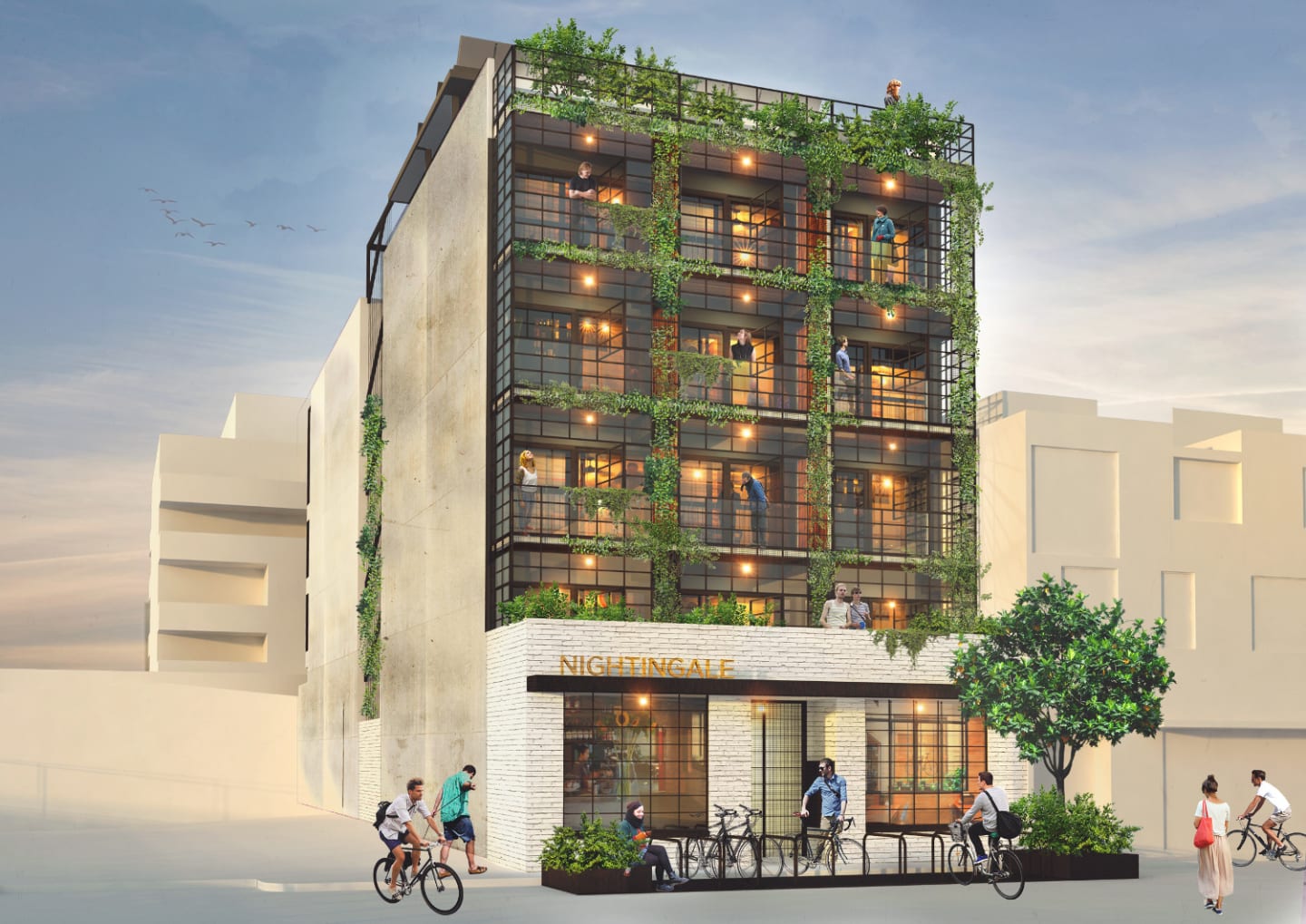VPELA Seminar Summary: VCAT's Nightingale decision, car parking, and the future of sustainable development
On Monday 9 October 2015, the Victorian Planning & Environmental Law Association (VPELA) in conjunction with Ratio Consultants presented: ‘Where we're going, we don't need roads? VCAT's Nightingale decision, car parking and the future of sustainable development.’
The seminar provided a balanced overview of the proposed Nightingale development, why VCAT set aside Moreland’s resolution to grant a permit for the proposal, and what this decision might mean for reform of car parking requirements and alternative approaches to statutory minimums.
The scene was set by chair Adam Terrill, Tract Consultants, who took the audience of largely built environment professionals to the setting of a Council Chambers at decision time, a scene known all too well to many, only with the added twist that this time the community are lobbying for approval.
Enter Jeremy McLeod of Breathe Architecture, architect behind acclaimed development and Nightingale genesis, ‘The Commons’, who opened without ambiguity, “I’m not a developer, I am an architect. I want to house people.”
McLeod discussed the ‘Nightingale Model’, a genuinely triple bottom line development model he and others developed alongside Ernst & Young and Maddocks. Drawing inspiration from the German-incepted Baugruppen Model, the debt-equity focused Nightingale Model caps profit, removes superfluous development costs, and restricts excessive resale profits (for a period of 20 years). Notably, a 700 person waiting list currently awaits approval of the 20 dwellings proposed in the mixed-use, Six Degrees Architects designed Nightingale.

Tamara Brezzi, Partner at Norton Rose Fulbright, cast an impartial planning and legal eye across the VCAT decision, noting that it was ultimately clause 52.06 (car parking) and the Nightingale application’s inclusion of a waiver of car parking requirements which determined the order. To crudely summarise, the Tribunal “found insufficient policy support for a complete waiver” which led to Brezzi’s asking of the equity question: were the proposal approved, then what about everyone else? In closing, Brezzi criticised the media for not fairly representing all matters and serving to heighten confusion and prejudice before urging all in the audience to read the decision.
Utilising live audience polling, Traffic Engineer Brett Young of Ratio Consultants provided a snapshot of transport modes across Melbourne before making environmental and fiscal arguments for not owning a car. Young perceived the Tribunal’s decision to be a fair one, acknowledging that it wasn’t until he had digested the entire decision that he had reached this position. Always positive, Young stressed that the decision was not all ‘doom and gloom’ for the future of developments with low or no parking provisions, introducing to the seminar a suite of alternative approaches to regulation which were not limited to on-street parking controls, the place of car-share, and other sustainable alternatives.
The last speaker Stephen Rowley, Lecturer at RMIT University, offered a further critique not of the decision but of the statutory mechanism that is clause 52.06. Opening with a tongue-in-cheek slide showing aerial views of Rome (‘parking shortage’) in comparison to Denver (‘adequate parking’), it was clear from the outset where the talk might go. Arguing that our status quo ‘predict and provide’ model is discredited, Rowley considered car parking as an amenity impact of land use while acknowledging the place of built form outcomes in driving the need to drive. Rowley agreed with Young’s alternatives to minimum parking requirements and added others, stressing in particular the need for a regional approach to demand rather than a site-by-site approach, noting that VCAT has for some time been ‘ringing the same bell’.
Finally, before the VPELA tradition of drinks, nibbles, and informed discussions commenced, the speakers formed a brief Q&A panel session. The first question quizzed McLeod on why he would want to cap profit: the audience was reassured that the architect sleeps well at night.
Ben Daly is a Town Planner at Tract Consultants.
